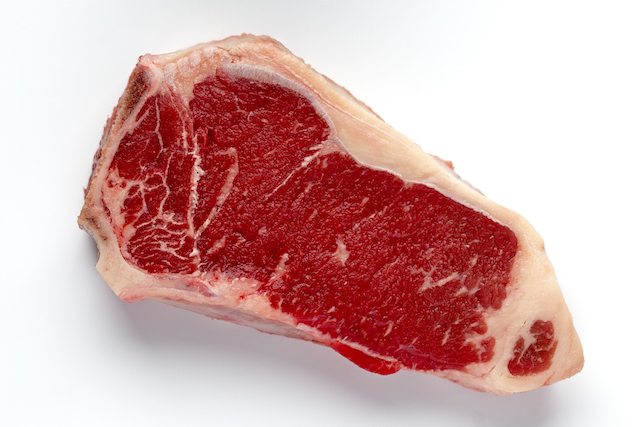
Red meat receives a bad wrap for causing high cholesterol and cardiovascular disease, and for creating joint pain and inflammation in the body. And I forgot, it’s bad for the environment. But is this really true? This is the first article in a series on red meat where we dispel the common myths of red meat and discuss the benefits of eating red meat.
When I was going to college taking nutrition courses in the 1990’s we were taught that eating red meat, because of its’ high saturated fat content, clogs up your arteries and creates inflammation (swelling and joint pain). For almost two decades I had little red meat in my diet in favour of what was believed to be ‘healthier’ white meat and fish for my source of protein. Eggs and bacon for breakfast were a rare treat. Cereal grains and toast were the ‘mainstream healthy choice’ for breakfast.
I started eating more red meat and other foods with saturated fat in my 40’s to see if this plan would help cure my blood sugar problems. Within one week most of the symptoms I had with having low blood sugar levels went away. At that point I decided to dive deep into the research to find out if eating red meat and other foods with saturated fat was bad.
More than fifty years ago, studies on animals and humans led people to believe that eating a diet high in cholesterol and saturated fat caused high cholesterol in the blood. However, recent research and more high quality research suggests this isn’t true.
It’s true that eating saturated fat raises blood cholesterol in the short-term. (1) However, there is no proof that eating saturated fat raises blood cholesterol long-term. (2) In fact, there is only one study that shows an association (a weak association) between saturated fat intake and high cholesterol. (2)
It’s true that eating saturated fat raises blood cholesterol in the short-term. However, there is no proof that eating saturated fat raises blood cholesterol long-term.
As well, low carbohydrate diets (which tend to be high in saturated fat) suggest that not only do they not raise cholesterol levels, but they have many benefits in reducing the risk factors for cardiovascular disease (CV disease). Low-carb diets neither increase nor decrease LDL cholesterol (“bad cholesterol”). Low-carb diets are also associated with significant decreases in body weight as well as improvements in several CV risk factors, including decreases in triglycerides, fasting glucose, blood pressure, body mass index, abdominal circumference, plasma insulin and c-reactive protein, as well as an increase in HDL cholesterol (“good cholesterol”). (3)
Could eating saturated fats like red meat increase the risk of heart disease in some way that is unrelated to cholesterol? The short answer is no. There is no association between eating saturated fat and heart disease and there may even be an inverse association in eating saturated fat and strokes (eating saturated fat may decrease the risk of stroke). (4, 5)
In saying all of this, there is variation in how people respond to eating saturated fat and cholesterol in their diet. If you took a group of 20 people and fed them a diet high in saturated fat you would find that on average there would be a no net increase or decrease in cholesterol blood levels. So there would be some people that have an increase in total or LDL cholesterol levels. This poses another important question I will address in a future article: Is it a problem if saturated fat intake increases your total or LDL cholesterol?
We now know eating red meat (saturated fat) does not increase cholesterol in the blood for most people. In the next article about red meat, I will talk about the long held belief that eating red meat causes inflammation.


Please send me the old article
Hi Paul,
I red through my article again and I’m trying to figure out what ‘old article’ you are referring to. Am I missing something? Can you please be more specific? Thanks.
Would love to hear more from you Dr Collins!! There’s so much mis-information out there right now regarding meat!!:(
Did you ever do an article on this: Is it a problem if saturated fat intake increases your total or LDL cholesterol?
If so, do you have a link?
Thanks.
Hi Paige. No I haven’t written an article on this. However, I will point you to some reputable sources that likely have: Chris Kresser, Dr. Mark Hyman, Dr. Berg
Good luck in your search!
Dr. Collins